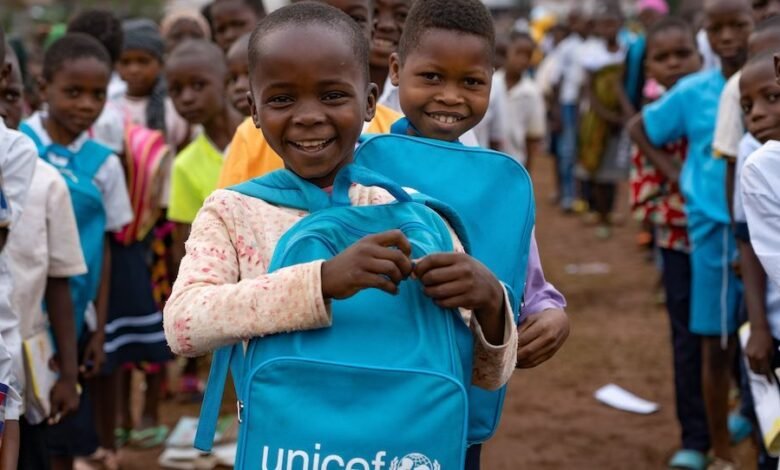2 in 3 Nigerian Children Trapped in Severe Poverty — UNICEF Report

A staggering two out of every three Nigerian children live in multidimensional poverty, lacking access to basic necessities such as healthcare, quality education, clean water, adequate nutrition, and protection, according to the Nigerian Child 2025 Report.
Launched in Abuja by UNICEF to mark World Children’s Day 2025, the report paints a stark picture of the challenges facing millions of Nigerian children while also highlighting areas of progress.
UNICEF Nigeria Representative, Ms Wafaa Saeed, emphasized that millions of children remain trapped in conditions that hinder their growth, development, and future potential.
Among the findings, 25 per cent of children aged five to 17 are engaged in child labour, one in three girls is married, and 2.2 million children remain unvaccinated. Additionally, 40 per cent of under-fives are stunted due to chronic malnutrition, and 10.2 million children are out of school, predominantly in the North-East and North-West.
Access to clean water and sanitation remains a major challenge: one in four children in rural areas lack safe drinking water, and 30 per cent of households still practice open defecation.
Children in conflict-affected states face even greater vulnerability, with over 1.5 million internally displaced across Borno, Yobe, and Adamawa, severely restricting access to education, nutrition, and protection services.
Despite these challenges, the report also highlights significant progress driven by government and development partnerships. Routine immunization campaigns have expanded, school enrolment has increased, and more than five million people now have improved access to clean water.
Under-five deaths have dropped by 43 per cent since 1990, exclusive breastfeeding rates have risen from 2 per cent to 29 per cent, and vaccination coverage has tripled from 13 per cent to 39 per cent.
Saeed stressed that these gains demonstrate the potential of collective responsibility and urged governments, donors, the private sector, and communities to continue prioritizing the wellbeing of Nigerian children. With nearly half of Nigeria’s population under 18, she concluded, “Every investment in children is an investment in peace, productivity, and national progress. They are our responsibility, and they are our future.”
The report underscores the Right of the Child to Survival, Development, Health, and Education as enshrined in the UN Convention on the Rights of the Child (CRC) and Nigeria’s Child Rights Act.
Every child has the right to grow up in an environment that ensures access to nutritious food, clean water, healthcare, education, and protection from exploitation and child marriage.
The findings highlight both the urgent need for action and the tangible benefits of prioritizing these rights to secure the future of Nigeria’s children.




